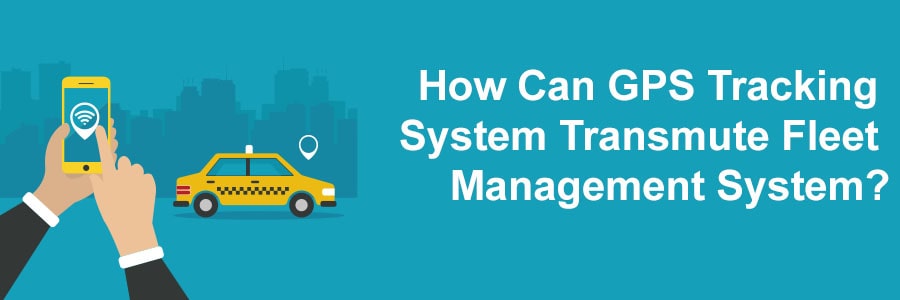How Can GPS Tracking System Transmute Fleet Management System?

A good fleet management system should be capable of managing multiple platforms from taxis to buses through a single dashboard. With a large number of corporates, schools and other educational systems now preferring their own vehicles to pick and drop the professionals and students, the need of a good fleet management system in place is the need of the hour.
What constitutes a good fleet management system?
Not every fleet management company has a holistic view when it comes to offering the services to the clients. As the trend goes by, a good fleet management system should cover most or all of the following offerings:-
- Real-time tracking facility for the vehicles
- A fail-proof mechanism in place to alert over-speeding or route deviations
- Keep operational cost in check
- Customized reports and sorted data for future references and assistance.
Typically, a good fleet management should have employee-centric features, driver-centric features, and features that would help the corporate admin.
Evolving technology to make Fleet management better
Internet of things and machine learning are the hottest technologies and there is no industry out there which does not want to deploy the technology and use it for offering better services. Both Internet of things and machine learning can help in saving billions of dollars as a result of road maintenance and repair taking place frequently due to rash driving and accidents.
However, until IoT and Machine learning makes their way in the fleet management system, one of the best options is to adopt GPS tracking system. The technology has the power to transform the whole fleet management.
It is not some vague idea, but the statement is backed by noteworthy research from Frost and Sullivan stating that GPS tracking system can increase the productivity of the fleet by 10 to 15% and reduce fuel consumption by 20-25%. Not just the productivity and fuel consumption but the GPS tracking system also helps in reducing the idle time by 20-30%.
Performance of GSP tracking device does not depend on the size of the fleet and the performance of these devices would meet the global standards. Whether the business owner has deployed as few as 10 cars or is managing thousands of cars and trucks, the GPS tracking device would help in tracking every single vehicle accurately.
GPS tracking system relies on telematics of each vehicle in the fleet to monitor the speed, safety of the driver, hard braking and various other dangerous driving habits. The system also ensures in timely pick and drop facility, delivery the items in time by cutting the idle time.
For those who have logistics business, tracking every bit of their fleet determines the cost they save and increase their bottom-line. Logistic companies can install the GPS and other IoT devices around trailers, truck, generators and other fixed and moving assets to learn about their whereabouts.
Lastly, Big Data just like in any other field can be deployed in the fleet management system to get the bigger picture and clearer overview of how the fleet is performing.
FAQ’S
Can a fleet management system effectively handle a diverse range of vehicles, including taxis and buses, on a single dashboard?
Yes, a robust fleet management system is designed to efficiently manage various types of vehicles, from taxis to buses, all within a single dashboard interface. This centralized platform allows fleet managers to streamline operations, monitor vehicle performance, and optimize resources regardless of the vehicle type.
Why are corporates, schools, and educational systems increasingly turning to their own vehicles for transportation needs?
Corporates, schools, and educational institutions are opting for their own vehicles to pick up and drop off professionals and students due to factors such as flexibility, control over scheduling, and ensuring the safety and convenience of their passengers. Having a fleet management system in place becomes essential to manage these vehicles effectively.
What specific features should a good fleet management system offer to cater to the needs of corporates, schools, and educational systems?
A good fleet management system should offer features tailored to the unique requirements of corporates, schools, and educational systems, such as flexible scheduling options, route optimization, real-time tracking, driver behavior monitoring, and passenger safety features.
How does implementing a fleet management system benefit corporates, schools, and educational systems in terms of efficiency and cost savings?
Implementing a fleet management system enables corporates, schools, and educational systems to optimize their transportation operations, leading to increased efficiency and cost savings. By effectively managing routes, monitoring vehicle usage, and minimizing idle time, organizations can reduce fuel consumption, maintenance costs, and overall operational expenses.
How can a fleet management system help ensure the safety and security of passengers, especially in the context of corporate and educational transportation?
A fleet management system enhances passenger safety and security by providing real-time monitoring of vehicles, enabling quick response to emergencies, and implementing features such as panic buttons, geofencing, and driver behavior analysis. This ensures a safe and reliable transportation experience for professionals and students alike.
Quick Read: Fleet vehicles health check analytics